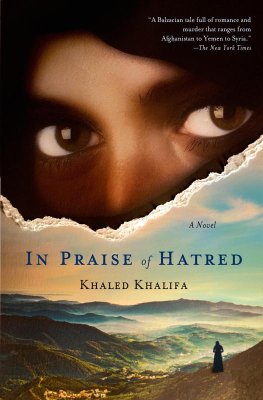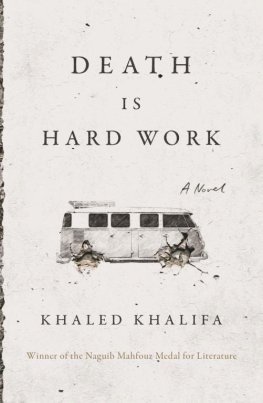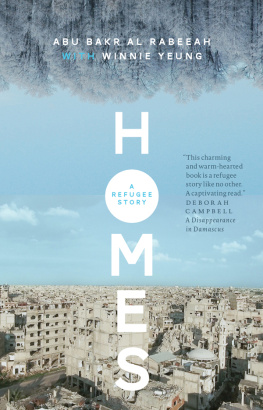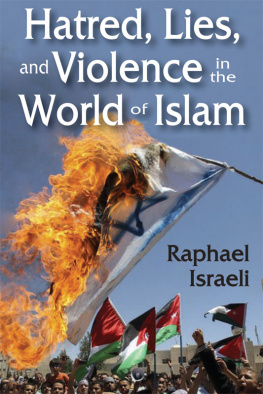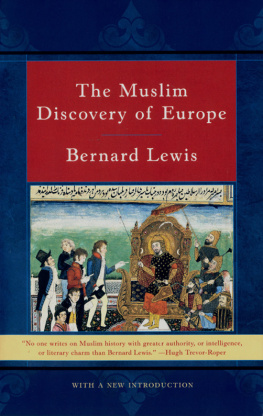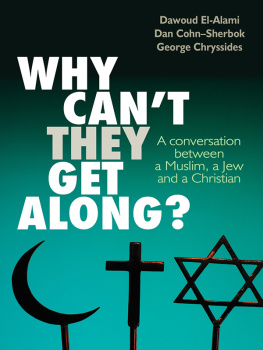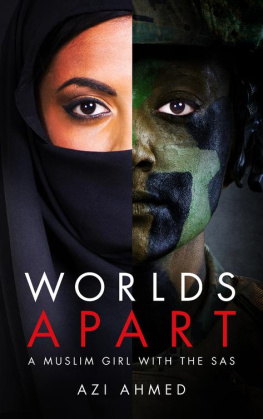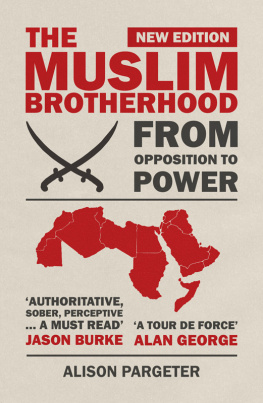Khaled Khalifa
In Praise of Hatred
The nameless narrator, a teenage girl and member of an old Sunni family in Aleppo
Her mother and father, a fish trader
Her brothers: Hossam and Humam
Her three maternal aunts: Maryam, Safaa and Marwa
Her maternal grandmother and grandfather, a carpet trader
Her three maternal uncles: Selim, Bakr and Omar
Radwan, an old blind family retainer
Khalil, the grandfathers driver
Hajja Radia and Hajja Souad, leaders of local prayer circles
The narrators classmates at middle school:
Fatima
Dalal
In Nazdaly, Turkey: Esmat Ajqabash, the owner of a khan in a remote part of the country
Wasal, his wife
Zahra, the daughter of Khalil and Wasal, later Bakrs wife
Wasals lovers in Mosul, Iraq: Khalil, the grandfathers driver; Mister John, an English expat; in London, a Pakistani cab driver; Abdel Ghany Bilany, a Syrian trader; a Spanish sailor
The narrators fellow students at secondary school:
Hala
Nada, who has a lover, Abu Ramy, in the death squad
Ghada, who has a middle-aged lover, an officer in the Mukhabarat
Layla
Hana, a member of the same religious circle
Hiba
Rima, Omars wife
Abdullah, a Yemeni man, Bakrs friend and associate, later to marry Safaa as his second wife
Zeina, Abdullahs first wife
Prince Shebab El Din, a Saudi prince, schoolfriend of Abdullah, and later a close associate of Abdullah and Bakr
Alya, a member of the religious organization and mentor of the narrator
Nadhir Mansoury, a death squad officer who later marries Marwa
Jalal, Selims son
Philip Anderson, a CIA operative
Saleh, a former Communist protg of Abdullah
Um Jalal, Selims wife
The narrators cellmates in the desert prison, including:
Sulafa
Suhayr
Rasha
Sheikh Nadim Al Salaty, an associate of Abdullahs in driving the Soviets out of Afghanistan
ONE. Women Led by the Blind
THE SMELL of the ancient cupboard made me a woman obsessed with bolting doors and exploring drawers, looking for the old photographs I had carefully placed there myself one day. A picture of my mother shaking the single lemon tree in the courtyard, with me standing beside her with shining eyes; of my father in military dress, smooth-chinned and sharp-eyed; of my brother Hossam wearing his school uniform and laughing, holding our younger brother Humam who was swathed in a blue blanket; of me in my long black clothes, my face circular in the middle of the black sheet and my body completely concealed, in front of a faded picture of hunters and their dogs in pursuit of a fleeing gazelle.
The picture had been placed there by the photographer to whose studio my father had accompanied me. The photographer took me by the hand and sat me down on a cold wooden chair, cajoling me kindly, and directed me to look towards his thumb near the camera shutter. Laugh, he said to me. I didnt know how. I looked at my father, seeking permission, then back to the thumb of the photographer; I grimaced as if I really was laughing. I can still remember the click of the camera and the solemnity of that moment with total clarity, as if I had only just left the studio that smelled heavily of mothballs and on whose clothes hooks were hung faded outfits of army officers and peasants, Mexican hats and cowboy costumes, like the one Terence Hill wore in Trinity is Still My Name. My small hand was weak in my fathers palm which clutched mine in fear of losing me amongst the crowds on Telal Street.
I am still searching for the smell of that ancient cupboard, placed in the room that the eldest of my aunts, Maryam, had designated for me after she sat facing my father and convinced him to let her take me to live with her and Safaa, my middle aunt. She told him that they were lonely after the death of my grandparents and the marriage of my youngest aunt, Marwa. My father nodded his head in agreement and then laid down some conditions which I didnt hear. After Maryam agreed to them, she and my mother began to gather up my clothes, my books and my other personal belongings. They were strewn all over the small room my father had built for me in the open space close to the kitchen after two small, firm mounds rose on my chest, their increasing weight causing me to speak less and less.
In my grandfathers house I was very pleased with my high-ceilinged room, the strictly observed mealtimes, and the regular visits to the hammam every Thursday, and to Hajja Radias house every Friday evening, like rituals whose necessity I didnt understand. The first thing that worried me was the cacophonous chanting of the women behind Hajja Radia. They made me nervous I almost suffocated in the crowded room, but I didnt dare flee. But on later visits the smell of sweat mixed with womens perfume began to relax me, like a woman whose desires are inflamed by chanting.
During the first year I lived in the large house I found the enormous spaces bewildering. I was half lost among stairs of stone and banisters of iron, the wide rooms, the high, decorated ceilings delicately coloured by a Samarkandi artist. My grandfather had brought him back from Samarkand after one of his journeys there to look for Persian carpets, and my grandmother assigned him the best quarters during his six-month stay in their house. Every morning, he would wake up at five oclock, perform the ritual ablutions with my grandfather, and then both of them would go to Aleppos Umayyad Mosque, after eating the breakfast my grandmother had already prepared and laid out for them on the low table close to the large pool.
The Samarkandi wasnt known to have a name. He used to return from the mosque and enter his small room to mix his colours and clean his brushes, and then he would close his eyes and withdraw into an ecstasy of painting like a devout worshipper. He transformed the ceilings of the three large rooms into everlasting masterpieces. His fame spread among the rich families who vied with each other in the decoration of their homes, but the Samarkandi continued to live in the house in silence, with the exception of a few words to my grandfather, until he left for Paris with his Aleppan wife and child. He left with a French officer who had been bewitched by the hands of this Samarkandi who created masterpieces out of thin air. His ceilings bore perpetual witness that he had, at one time, lived in the city of Aleppo. His leaving was like a death for my grandfather, who had discovered the Samarkandis talents and interceded on his behalf in his marriage to Bint Aboud Samadi.
Before his departure, the Samarkandi had come to the house in clean clothes, his small eyes laughing. My grandfather embraced him warmly and kissed him goodbye; the artist said, You are my father. Afterwards, he sent a letter with his address in Paris and a photograph, an unheard-of miracle, showing himself, his wife and his child standing in a park. His wife was wearing brightly coloured clothes; her large white breasts were on display and she wore a stylish beret instead of a proper head covering. My grandfather laughed and gave the picture to my grandmother, who sneered at the unveiled face and threw it into the fireplace. She never again mentioned the bare face of Bint Aboud Samadi, even when she came to visit twenty years later together with her son. He wore a suit which was overpowering in its elegance, and there wafted from him a strong fragrance which disconcerted Maryam.
The Samarkandis son was astonished by our spacious house, by its stone arches and its vaulted doorway, and by the two pillars decorated in Corinthian style and added by my grandfather, thereby turning what was supposed to be an entrance hall into his own room. The son scrutinized the house, then took out his camera to meticulously record every detail of the houses angles and his fathers ceilings, while his mother (a true Parisienne) sipped coffee quietly and composedly with my grandfather. He was expansive, beaming with joy at hearing news of his Samarkandi son, who still recalled him as the saviour who had lifted him from a corner of the ancient souk into the welcoming space of the world, and he repeated as much to his visitors, students and teachers of decorative art. My grandfather was delighted with this Aleppan woman who had removed her black clothes and consistently demonstrated astonishing adaptability, having swiftly learned French to be of assistance to her husband, who declared her to be his world. Husband and wife worked as determined as tortoises climbing rugged mountains.

